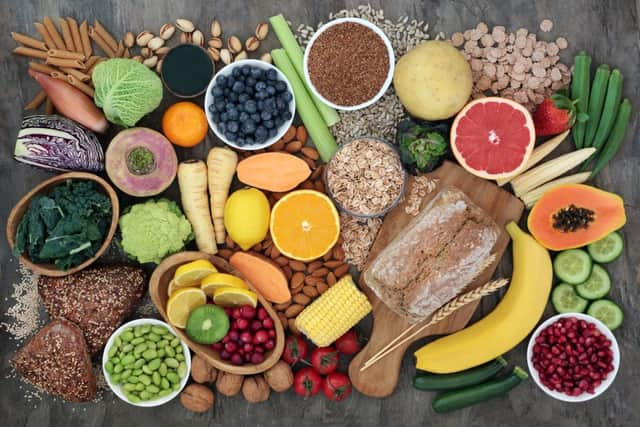Eating your way to a better sleep - The Do’s and Don'ts of eating before bed


This article contains affiliate links. We may earn a small commission on items purchased through this article, but that does not affect our editorial judgement.
Common food myths of snaffling before bedtime
To mark World Sleep Day 2022 (Friday March 18), food sensitivity specialists YorkTest, have given their expert insight into the foods that will help you sleep better, expert advice on when we should and shouldn’t eat before bed, and good and bad sleeping habits we should take into consideration.
Lack of sleep can be caused by a number of factors but there are things you can do to make that process a little bit easier and that includes eating the right foods before bed at the right times
Advertisement
Hide AdAdvertisement
Hide AdWhen it comes to eating before bed, we’re all guilty of a little midnight snack from time to time, but this can often cause havoc in our digestive system and disturb our night’s sleep.
But did you know, some foods can actually help us get a better night’s slumber?
Sal Hanvey, expert nutritionist at food sensitivity specialist YorkTest, has given her expert insight into what foods we should be eating to help us get better sleep.
1 - Cheese Nightmares? Myth or Fact?
As kids, we’ve all been told that eating cheese before bedtime would cause nightmares - but that doesn’t seem to be the case.
Advertisement
Hide AdAdvertisement
Hide AdWhile you shouldn’t munch on a block of cheddar right before turning in, eating dairy products throughout the day could put you on the path to a good night’s sleep due to being rich in an amino acid called Tryptophan.
Tryptophan, when ingested, gets turned into serotonin (the happy hormone), before finally being converted into melatonin (the sleepy hormone). These foods are therefore ideal in building towards a good night’s sleep. Examples of some include:
Dairy products (milk, low-fat yoghurt, cheese)Poultry (turkey, chicken)Seafood (shrimp, salmon, halibut, tuna, sardines, cod)Nuts and seeds (flax, sesame, pumpkin, sunflower, cashews, peanuts, almonds, walnuts)Legumes (kidney beans, lima beans, black beans, split peas, chickpeas)Fruits (apples, bananas, peaches, avocado)Vegetables (spinach, broccoli, turnip greens, asparagus, onions, seaweed)Grains (wheat, rice, barley, corn, oats)
2 - Plant-based food will help you to stay asleep for longer
Advertisement
Hide AdAdvertisement
Hide Ad

While we usually attribute plant-based foods to keeping us energised and feeling fresh, it seems they’re pretty good at helping us get some shut-eye too. With most nuts and seeds having a high magnesium content, they could be key in getting us to sleep and keeping us there too.
This is due to something called GABA (Gamma-aminobutyric acid) an amino acid that, if levels are low, can cause your brain to have racing thoughts and a busy mind. Magnesium has GABA boosting properties meaning that eating some of these foods within a few hours of going to bed could be just what you need for a good night’s sleep. Foods that are loaded with magnesium include:
Pumpkin seed - kernels: Serving Size 1 oz, 168 mgAlmonds, dry roasted: Serving Size 1 oz, 80 mgSpinach, boiled: Serving Size ½ cup, 78 mgCashews, dry roasted: Serving Size 1 oz, 74 mgPumpkin seeds in shell: Serving Size 1 oz, 74 mgPeanuts, oil roasted: Serving Size ¼ cup, 63 mg
3 - Eating within three hours of bedtime is a big no-no!